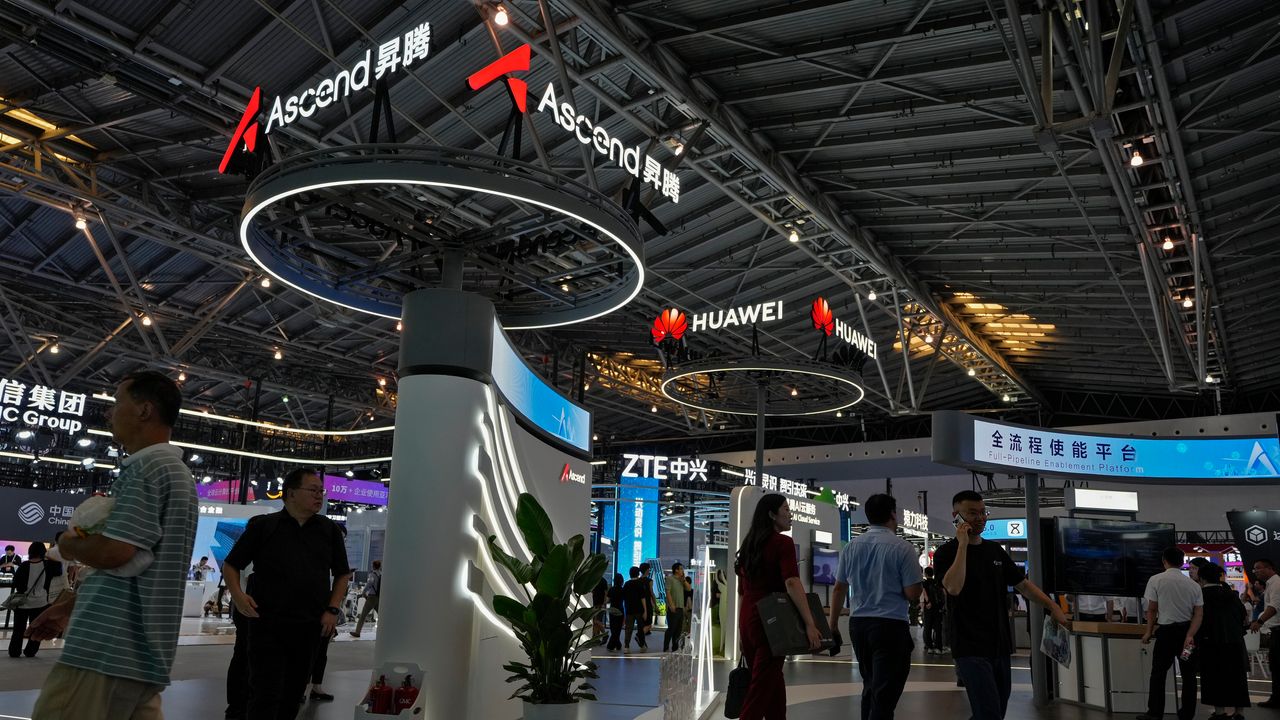
In the fierce competition in the global technology field, chips, as the core of information technology, are leading a new round of technological revolution and industrial transformation. As a leading enterprise in the global communication and information technology field, Huawei has not backed down in the face of the continuous sanctions pressure from the United States. Instead, it has accelerated its pace of independent innovation and is preparing to launch a new generation of chips to challenge industry giant NVIDIA and overcome the challenges brought by external sanctions.
Huawei's upcoming new chip is not only a concentrated display of its technological innovation strength, but also an important challenge to the global chip market landscape. Huawei and Nvidia have maintained a fierce competitive edge in cutting-edge technologies such as AI, 5G, and cloud computing. The launch of this chip marks a crucial step for Huawei in pursuing high-performance, low-power, and high-performance computing, and is expected to occupy a more important position in the global chip market.
On August 15th local time, according to the Wall Street Journal, Huawei's upcoming "Ascend 910C" chip is expected to rival Nvidia's H100 chip in performance. In addition, Huawei has revealed to potential customers that the chip will begin shipping in October this year and is expected to have an order volume of over 70000 units, with a total value of approximately $2 billion. This measure not only demonstrates Huawei's profound strength in AI chip research and development, but also reflects Huawei's determination and achievements in domestic substitution.
As Huawei's new generation AI chip, the "Ascend 910C" inherits the high-performance and high-efficiency characteristics of the Ascend series. The chip has been optimized in terms of architecture design, mainly including specially designed computing units, large capacity storage units, and corresponding control units. These components together form the powerful computing foundation of the Ascend 910C, enabling it to meet the needs of complex scenarios such as large model training and inference.
Since Huawei was included in the US entity list, it has faced unprecedented restrictions and obstacles in chip procurement, technology research and development, and other aspects. The United States intervenes in the market through political means, attempting to cut off Huawei's connection with the global semiconductor supply chain, hindering its technological progress and industrial development. However, Huawei did not succumb to external pressure and instead stimulated a more determined drive for independent innovation. The launch of this new chip is another important achievement for Huawei in overcoming the challenge of US sanctions.
Faced with US sanctions, Huawei has adopted various strategies to overcome challenges. On the one hand, Huawei has increased its investment in independent research and development, striving to achieve technological independence in chip design, manufacturing, and other areas. On the other hand, Huawei actively establishes contacts with domestic partners to seek alternative suppliers and supply chain solutions. In addition, Huawei also promotes the development of the domestic computing power industry chain through political guidance and financial support, forming a localized computing power ecosystem.
It is worth mentioning that Huawei has always been committed to technological innovation and research and development investment, which is also one of the important reasons for maintaining a leading position in the global technology field. In order to launch this new chip, Huawei has gathered top scientific research talents from around the world and adopted the most advanced design concepts and technological methods. This persistent pursuit of technological innovation has not only won market recognition for Huawei, but also provided strong endogenous motivation for it to overcome external sanctions.
In summary, Huawei's launch of the new chip "Ascend 910C" to challenge Nvidia is not only a demonstration of its own technological strength, but also a positive response to US sanctions. The successful launch of this chip will further consolidate Huawei's position in the global AI market. At the same time, it will actively participate in the construction and improvement of the global scientific and technological governance system, contributing to the construction of an open, cooperative, and win-win international scientific and technological new order.

On October 16th local time, it was reported that a Boeing 737 MAX 8 flight of United Airlines from Denver to Los Angeles had its windshield break during the flight.
On October 16th local time, it was reported that a Boeing 7…
The World Economic Outlook Report released by the Internati…
The recently held G20 Finance Ministers and Central Bank Go…
According to recent reports by The Guardian and Reuters, th…
Recently, according to Japanese media reports, bear attacks…
In June 2025, a massive wave of protests swept across the U…